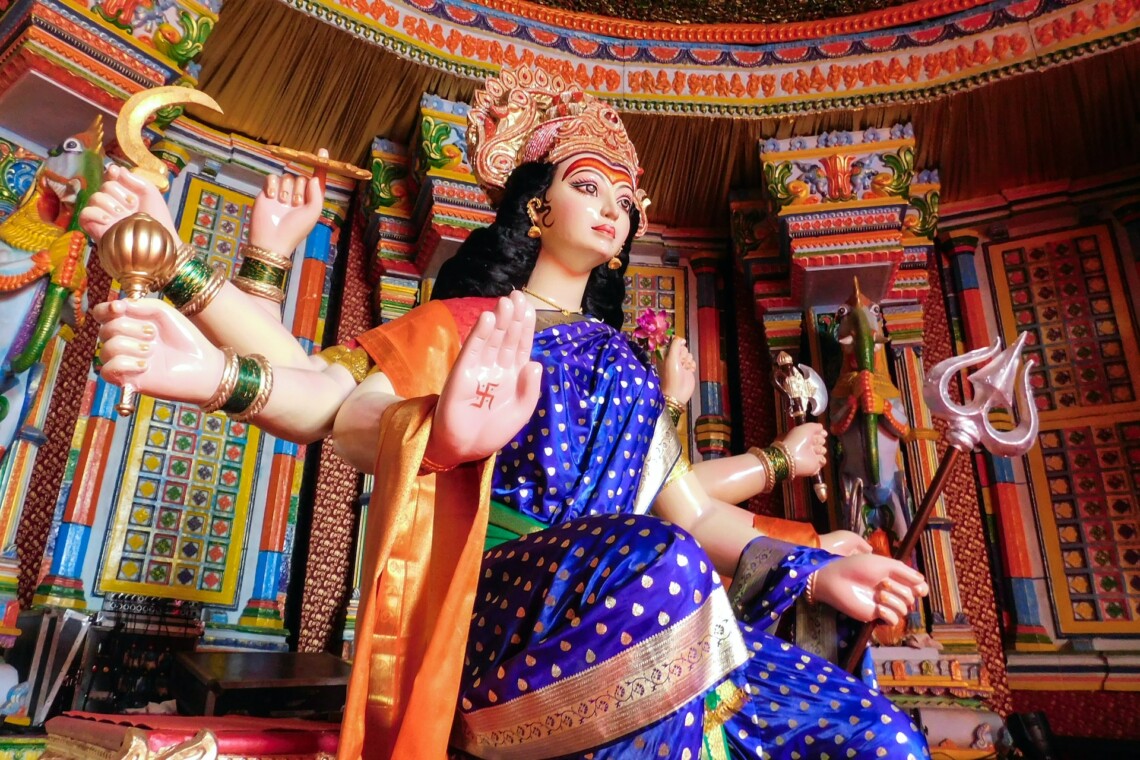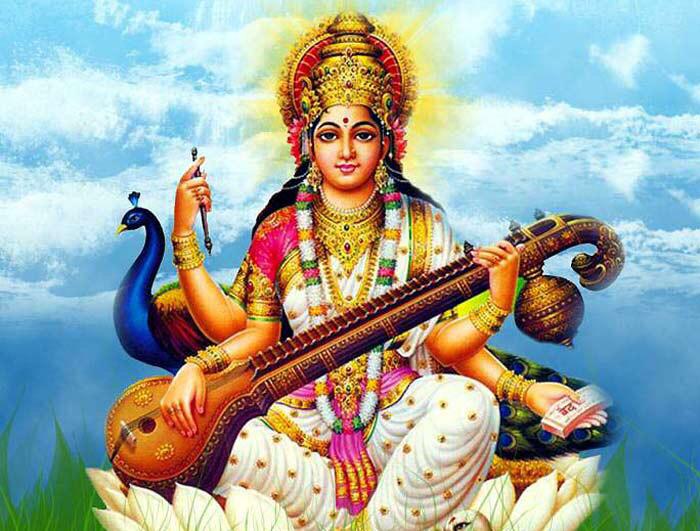Best Art Market in Bali That’s Worth a Visit!
- 17/01/2024
- Articles
Illustration of Best Art Market in Bali, photo by Charlie Pauly The Island of Gods is home to a truly fascinating culture... Read More

Illustration of Saraswati Ceremony, photo by Sonika Agarwal on Unsplash
The Balinese-Hindus have a day dedicated to Saraswati, the goddess of knowledge. She is said to have authority over books, lontar manuscripts, and all other objects of knowledge. These objects may not be used on her festival day because they are presented with offerings.
The ritual is performed in one’s own home for one’s books. Still, one also pays visits to all the Balian Usada (traditional ‘doctors’) or other people of knowledge one may have consulted since the previous Hari Saraswati (Saraswati Day) with offerings.
Why is the Day of Knowledge on this specific day? This is when things start to get interesting. Saraswati, or the day of knowledge, is the last day of the 210-day pawukon (also pewukon) calendar, which is divided into 30 weeks (wuku) of 7 days and defines market and temple anniversaries. Hari Saraswati and the names of all the individual wuku weeks are linked to the Balinese story of incest prohibition, Watugunung, Bali’s Oedipus.
Illustration of Balinese Offerings, photo by Herwin Prabawananda on Unsplash
Among the offerings is a distinctively shaped rice effigy in the form of two geckos (male and female). The gecko, also known as the ‘cicak’ in Indonesia, is the traditional symbol of Saraswati: the gecko is said to have spiritual sensitivity with the dimensions of Purusa and Pradana. But the cicak also listens to people’s secrets, even in their private quarters. As a result, it is all-knowing (best compared to ‘a fly on the wall’).
In this well-known legend, an ancient king named Watugunung commits a mortal sin by unknowingly making love to his own mother. The Gods discover this unnatural behavior and, rather than killing him, make Watugunung the protector of the calendar and the master of its final (30th) week.
His mother is designated as the protector of the first week, signaling the start of the next cycle. Week 1 of the Pawukon calendar is called Sinta, after the mother and Week 30 is called Watugunung, after the father. For the sake of clarity, this is the same relationship that exists between December of one year and January of the following year.
This is effective symbolism because what separates the ‘cycles’, for example,w the incestuous son and mother? That distinction is Knowledge / Awareness, which corresponds to Saraswati Day, the last day of the calendar.
Saraswati embodies time awareness through calendar organization; it also embodies the need to prohibit incestuous relationships — this is at the heart of civilization! The concept of time and the need to regulate social life through religion and the calendar emerge from the same Balinese myth.
Returning to Watugung’s Greek counterpart, who was also subjected to an unnatural relationship, Oedipus instead blinds himself and wanders the world, cursing the Gods.
The seven-day wuku week is not the Pawukon’s only inner cycle. The Pawukon system is a computation of ten different cycles called wara, ranging from the “one-day cycle” (ekawara) to the “ten-day cycle” (dasawara). Each “day” of each wara cycle has a name and value determined by its position on the cosmic rose of the wind or pangider-ider. In practice, the three-day cycle (triwara), five-day cycle (pancawara), and seven-day cycle (saptawara) are the most important for ritual purposes.

Illustration of Saraswati, photo by Chinmaya Upahar
While old traditions saw the cicak as a goddess symbol, as the Balinese began to define themselves as Hindu in the middle of the last century (at the same time that modern education was embraced), they adopted the Hindu Indian Symbolisation of Saraswati, which can now be found in numerous Balinese representations of the goddess.
Saraswati is thus represented by a beautiful four-handed woman riding on a white swan among water lilies. Her hands hold a lontar, a palm leaf manuscript; a chain, representing knowledge as something that never ends; and a musical instrument, representing science as something that develops through cultural growth.
During Saraswati Day, schools and educational institutes throughout the island will be packed with students dressed in their ceremonial finery for a session of communal prayer. The resource books are piled high and blessed with an offering of fruits, flowers, and holy water.
That’s the Saraswati or also known as the day of knowledge. So, if you want to visit Bali, and want to know more about its culture, you can contact us at info@asiaholidayvilla.com and message us at (+62) 816-342-767. Let’s make your interest in Balinese culture a to come true!
Join The Discussion